A lower jaw implant is an essential dental solution for those who have lost teeth in the lower jaw, disrupting the balance of oral structures and affecting overall dental health. This innovative procedure not only replaces missing teeth, but also plays a crucial role in preventing jawbone deterioration, safeguarding bone health, and restoring confidence in one’s smile. Opting for lower jaw implants can alleviate issues related to speaking and chewing difficulties that often accompany tooth loss, ensuring a more natural and functional oral experience. With the right treatment, patients can experience a seamless tooth replacement that looks and feels like their natural teeth. By investing in a lower jaw implant, individuals are taking a proactive step towards maintaining their oral health and well-being.
The lower jaw implant, also known as a mandibular implant, has emerged as a leading method to address tooth loss in the lower jaw, significantly enhancing dental functionality and aesthetics. This cutting-edge option serves as a reliable solution for those facing challenges due to missing teeth, effectively combating issues like jawbone weakening and facilitating natural chewing and speaking abilities. When considering alternatives such as dentures or bridges, many are now turning to mandibular implants for their durability and ability to stimulate bone health, ultimately leading to improved physical and emotional well-being. Engaging in discussions surrounding dental implants can help individuals understand their options better and the importance of promptly addressing tooth loss to prevent further complications. By considering a mandibular implant, patients are assured a long-term solution that blends seamlessly with their existing dental structure.
Understanding Lower Jaw Implants
Lower jaw implants are revolutionary solutions for those dealing with missing teeth. These dental implants act as artificial roots, providing the necessary support for replacement teeth. By integrating with the jawbone, lower jaw implants restore functionality and aesthetic appeal, making eating, speaking, and smiling enjoyable again. The procedure involves surgically inserting a titanium post into the jawbone, allowing it to fuse and support a crown or denture, effectively mimicking natural teeth.
The importance of lower jaw implants cannot be overstated. When teeth are missing, not only does it create gaps in your smile, but it also risks the health of the jawbone underneath. The jawbone relies on the stimulation that comes from having teeth; without it, the bone can deteriorate, leading to further complications. With lower jaw implants, the constant pressure from biting and chewing helps maintain bone density, preventing deterioration and ensuring your oral health remains intact.
Effects of Missing Teeth on Jawbone Health
Losing a tooth in the lower jaw can trigger a cascade of health issues, particularly related to jawbone integrity. The jawbone surrounding the missing tooth starts to lose mass over time, weakening its structure and leading to complications such as further tooth loss. As the bone shrinks, the facial structure can begin to change, resulting in an aged appearance due to a sunken-in face, affecting self-esteem and overall quality of life.
This bone deterioration can be particularly rapid in the lower jaw when compared to the upper jaw. Studies suggest that within just the first year after losing a tooth, the bone can lose significant volume, which makes treatments like lower jaw implants essential. Not only do they serve as effective solutions to restore smiles, but they also act as protective measures for better overall bone health.
Why Choose Implants Over Dentures?
When faced with the decision of how to replace missing teeth, many individuals consider dentures. However, lower jaw implants offer superior benefits that dentures cannot match. While dentures may provide a temporary cosmetic fix, they often fail to offer the stability and functionality that implants deliver. Implants fuse directly with the jawbone, providing a stable foundation that allows for normal biting and chewing without discomfort.
In contrast, dentures can shift, causing difficulty in eating and speaking, and often necessitating frequent adjustments. With lower jaw implants, patients experience minimal maintenance compared to removable options. This long-lasting solution safeguards not just your ability to enjoy your meals, but it also sustains your oral health, reducing the risk of further dental issues.
The Process of Getting Lower Jaw Implants
The process of receiving lower jaw implants begins with a thorough consultation with a dental professional. During this appointment, the dentist evaluates the bone quality and quantity using advanced imaging techniques like 3D dental tomography. This essential step is crucial in determining whether the jawbone is capable of supporting an implant or whether additional procedures, such as bone grafting, are necessary.
Once suitability is confirmed, the implantation process can proceed. This involves placing the titanium post into the jawbone, a procedure that is typically done under local anesthesia to ensure patient comfort. After the post has fused with the bone in a process known as osseointegration, which usually takes a few months, the dentist will attach a custom-made crown that matches your natural teeth, restoring both function and appearance.
Long-Term Benefits of Lower Jaw Implants
Investing in lower jaw implants is not just about addressing current dental needs; it is a long-term solution that pays off in many ways. Unlike other treatments that might require frequent replacement or adjustment, implants have shown to last over a decade when cared for properly. They withstand normal wear and tear much better than dentures, which often wear out or require replacement due to fit issues.
Moreover, lower jaw implants contribute positively to bone health by mimicking natural tooth roots. They stimulate the jawbone and prevent the side effects associated with bone loss, such as facial changes and additional tooth loss. This means that patients who opt for implants not only regain their smile but also protect their jaw structure for years to come.
Cost Considerations for Lower Jaw Implants
When contemplating lower jaw implants, understanding the associated costs is essential. The price of implant procedures can vary widely based on several factors, including the state of the jawbone, the type of implant materials used, and the specific needs of the patient. While the initial investment in implants may be higher compared to dentures, the long-term benefits often justify the expense.
It’s crucial to remember that lower jaw implants are a one-time investment in your oral health. Unlike dentures that may need frequent replacements, implants provide a permanent solution if maintained correctly. When evaluating dental costs, it may be worthwhile to consider the potential savings over time due to fewer replacements and repairs.
Impact of Oral Hygiene on Implant Longevity
Oral hygiene plays a vital role in ensuring the longevity of lower jaw implants. While implants are designed to be low maintenance, proper care is essential to prevent infection and ensure that the surrounding gum tissue remains healthy. Daily brushing, flossing, and regular visits to the dentist for cleanings are crucial in maintaining both the health of the implants and the adjacent natural teeth.
Neglecting oral hygiene can lead to peri-implantitis, an inflammatory condition that can compromise the stability of the implant. Just as natural teeth can succumb to gum diseases, implants also require vigilant care. Adopting an effective oral hygiene routine can significantly improve the success rates of lower jaw implants, contributing to their longevity and your overall health.
Lifestyle Changes After Implementing Implants
After receiving lower jaw implants, patients often experience some lifestyle changes to optimize both healing and implant success. Initially, a soft food diet is recommended to allow the jawbone to heal effectively without undue stress. Gradually, normal dietary habits can be resumed, but caution is advised to avoid overly hard or sticky foods that might jeopardize the implant structure.
Moreover, patients may also need to revisit their oral hygiene practices, integrating new cleaning tools that can better reach implants. Over time, most patients find that they can return to normal eating patterns without the adjustments required for dentures. Adaptations like these highlight the transition from temporary solutions to more permanent, enjoyable daily interactions with food and social situations.
Conclusion: Embracing Lower Jaw Implants for a Healthier Smile
In summary, lower jaw implants represent a significant advancement in dental treatment for missing teeth. They not only solve the aesthetic issues associated with gaps in smiles but also serve crucial health functions, such as preserving jawbone integrity and ensuring long-term oral health. As dental technology continues to evolve, the emergence and rising popularity of implants reflect their effectiveness in combating the complications of tooth loss.
Ultimately, investing in lower jaw implants could be the key to restoring both confidence and functionality in daily life. It is advisable to consult with a qualified dentist as soon as possible when dealing with tooth loss, to explore the options available and embark on the journey towards a healthier smile.
Frequently Asked Questions
What are the benefits of a lower jaw implant for tooth replacement?
A lower jaw implant provides numerous benefits for tooth replacement, including improved functionality, a natural appearance, and support for bone health. By integrating with the jawbone, dental implants prevent further deterioration, enhance chewing capabilities, and restore confidence in your smile.
How does a missing tooth affect bone health in the lower jaw?
Missing teeth can lead to bone health issues in the lower jaw, such as bone density loss and deterioration. The absence of a tooth roots signals the jawbone to shrink, which can alter your facial structure over time. A lower jaw implant can prevent these adverse effects and maintain healthy bone mass.
What is the procedure for a lower jaw implant application?
The lower jaw implant application involves several key steps, including thorough assessment of bone quality using dental tomography. If adequate bone volume is present, the dentist will place the implant, which serves as a root for a replacement tooth while ensuring proper aesthetics and function.
Why should I choose a lower jaw implant over dentures?
Lower jaw implants are typically preferred over dentures because they provide greater functionality, a more natural look, and help maintain bone health. Unlike removable dentures, implants fuse with the jawbone, ensuring stability and eliminating the discomfort often associated with denture wear.
What factors influence the cost of lower jaw implants?
The cost of lower jaw implants varies based on several factors, including the patient’s bone quality, the number of implants needed, and the materials used. Consulting with a qualified dentist to assess your specific situation will provide a clearer estimate for your lower jaw implant application.
How do lower jaw implants improve oral health?
Lower jaw implants significantly improve oral health by preventing further bone loss, restoring proper chewing function, and enhancing speech. They act as a replacement for missing tooth roots, stimulating the jawbone and promoting its health, which is vital for overall dental well-being.
What should I know about the recovery process after a lower jaw implant procedure?
After receiving a lower jaw implant, patients can expect a recovery period that includes initial swelling and discomfort. Following your dentist’s aftercare instructions, maintaining oral hygiene, and attending follow-up appointments will ensure proper healing and the long-term success of your implant.
How long do lower jaw implants last?
Lower jaw implants can last over a decade or longer, especially when cared for properly with good oral hygiene. Studies suggest that with diligent maintenance, implants can be highly durable, offering a long-lasting solution to missing teeth concerns.
Are lower jaw implants a suitable solution for anyone with missing teeth?
Lower jaw implants are generally suitable for anyone with missing teeth, provided they have sufficient bone density and good overall health. A comprehensive evaluation by a dental professional will determine if you are an ideal candidate for this effective solution.
Can lower jaw implants prevent further tooth loss?
Yes, lower jaw implants can help prevent further tooth loss by maintaining jawbone integrity and preventing adjacent teeth from shifting into the gaps left by missing teeth. This stability contributes to a healthier bite and overall dental alignment.
| Key Points |
|---|
| Missing teeth in the lower jaw disrupt oral structure and health. |
| Lower jaw implants are effective for restoring function and aesthetics. |
| Bone loss occurs rapidly in the lower jaw after tooth loss. |
| Delaying treatment increases health risks and treatment costs. |
| Implants promote bone health and prevent further deterioration. |
| Implants offer better functionality and natural appearance compared to dentures. |
| Long-lasting results, often exceeding 10 years with proper care. |
Summary
A lower jaw implant is a vital solution for anyone suffering from missing teeth in the lower jaw. This treatment not only restores oral functions such as biting and speaking but also prevents bone loss, ensuring your jaw remains healthy and strong. By choosing lower jaw implants, you can regain your confidence and enjoy a natural-looking smile while eliminating the difficulties associated with missing teeth. It’s crucial to address dental issues promptly to avoid further complications, and consulting a skilled dentist is key to achieving the best results.


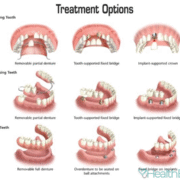
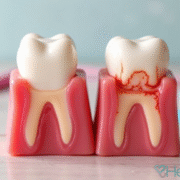
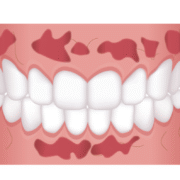
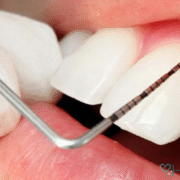
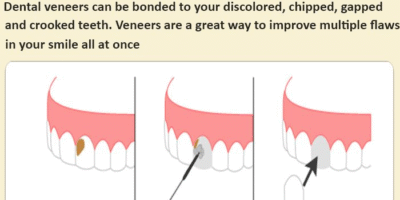


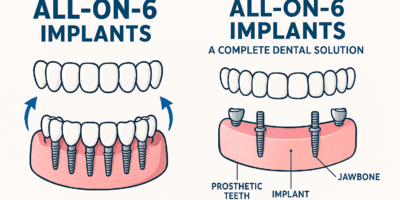
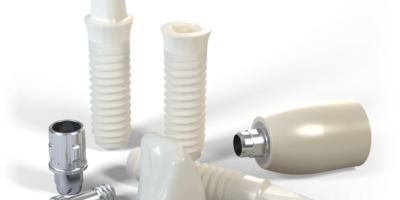




Comments